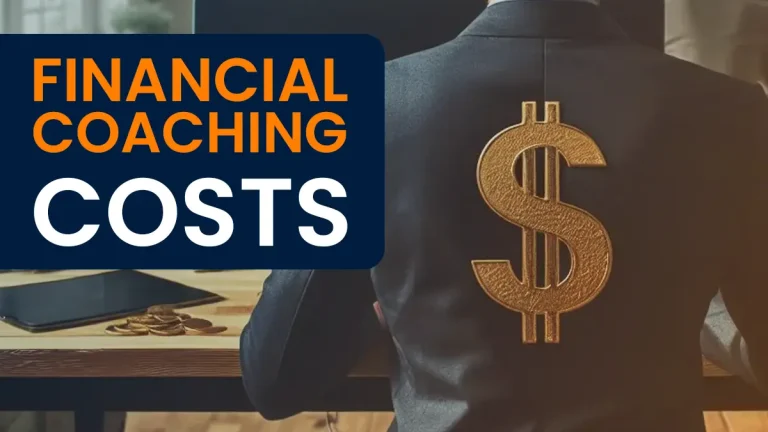Legendary investor Charlie Munger once said:
“The first $100,000 is a bitch, but you gotta do it. I don’t care what you have to do – if it means walking everywhere and not eating anything that wasn’t purchased with a coupon, find a way to get your hands on $100,000. After that, you can ease off the gas a little bit.”
There are a few reasons the first $100k is important. Simply having that large financial safety net in case of emergencies, for example, might be one of them.
But Charlie is so passionate about getting there fast because, after you accumulate $100,000, your money starts making lots of money on its own.
It starts to compound over time – and the more time you give it to compound the exponentially greater the effect (more on this below).
Let’s first examine just why that first $100,000 is so difficult.
Life events get in the way
Perhaps the most pertinent reason saving $100,000 is so difficult is that key life events – that you may not even be thinking about right now – have a habit of ruining your financial plans.
Let me explain:
First you save up $10k, then decide you need a new car to get to work. Sure, you could finance a car and save most your cash, but the interest on those car payments mean you might end up paying 50% more for the car then if you bought in cash!
If you buy the car on finance, you’re also limiting the money you can put into your investments each month, as you now have a large monthly loan to pay off.
So you decide to buy the car with cash outright and deplete your savings. But quickly manage to save up $20k. Great!
Unfortunately, you and your partner want to buy a house, and the deposit is $20k each. There goes the cash again!
Not to worry! You bought the house, but quickly manage to save up $30k.
Unfortunately, you now want the dream wedding…and it’s back to zero again.
Life events happen, and in an ideal world we would save and budget for these separately. But it’s hard to imagine a future where you’re paying for a wedding when you’re single. Saving for it just feels weird!
So how do we avoid this? By making smarter financial decisions.
Buying a car is one of the worst financial decisions you can make, as it is a depreciating asset. That means it loses value from day 1 of you driving it.
You should be buying assets that increase in value, and therefore your net worth.
A car is often necessary, though. So, you must simply be as economical as possible.
Do you need the $10k car or could you find a half decent one for $5k?
Similarly, it’s worth asking yourself is it is truly worth spending all that hard-earned money on a dream wedding?
Finally, I won’t be saying that buying a house is a bad idea, but there are certainly merits to renting when young.
Expect these life events, indulge in them, but also think about what they are truly worth to you.
Salaries are lower when you are younger
This seems obvious, but it’s worth mentioning. Trying to save your first $100,000 is demoralizing for someone new to the workforce.
$100k seems like a pipedream when you’re earning a few dollars plus tip as wait staff, just trying to make it through college.
But trust that your salary will improve over time as you progress in your career; statistically it does. If you’re taking the time to read an article like this, you probably have the drive to make it happen.
$100,000 will become more and more feasible the older you get, as you have more disposable income and can save & invest more.
Stick with it!
Compounding is not working in your favor (yet!)
Money makes money. The more you have, the easier it is to get.
To get from $100k to $200k requires the same investment return (100%) as it does from to get from $10k to $20k.
So, despite investing in the same asset and getting the same investment return, your $10k investment will return a smaller amount than someone investing $100k. This part is easy to understand intuitively.
What this means is, when your first start out, the $10k you manage to save is not going to get a great investment return.
If the market grows 10% in 1 year of your investment, you’d now have $11k. An extra $1,000 after a year is not very motivating when aiming for $100k.
But next year, if that $11,000 grows by 10% again, you’ll earn $1,100 in interest (an extra $100 for doing nada).
So, as you invest more money, the amount of interest you earn on your investment grows (compounds) exponentially.
When you get to $91k invested, 10% growth in a year ($9,100) would allow you to reach your $100k goal – without you adding anything at all!
The power of compound investing over time is incredible, and it becomes more and more evident with every additional dollar you invest.
Use our investment return calculator to experiment with the power of compound investing.
It truly is your friend. If you understand how it works, you’re more likely to stick with your investing plan.
Your youth is a time to invest in yourself, not the market
It is a cliché, but no matter how much money you amass in life, you won’t ever be able to buy your 20’s again.
Your early adulthood is a time to travel, learn, and find out what you love. It all comes with a cost, but often will increase your long-term earning potential.
Therefore, you can think of the money you spend in your youth as an investment in yourself. Not just your happiness, but your overall life education.
You could skimp and save in your 20’s to get to $100k, but at what cost?
Is it worth it to not get a degree? To not expand your mind by travelling the world? To not go to events and make connections?
Perhaps these activities are a barrier to making your first $100k, but they could absolutely increase your future earning potential.
Pick and choose wisely what you forgo in favor of investing.
Practical tips to getting started
Now we know the common challenges and pitfalls, let’s take a look at practical steps to make the dream a reality.
First, set clear financial goals, and a budget that will help you meet them.
So, what is your goal? Charlie Munger’s reason for getting to $100,000 above was because he wanted to invest it and grow it as fast as possible. He succeeded in turning that into a couple of billion.
Is your goal to invest it, or to buy a flashy car? If it’s the latter, i.e. you’re constantly chasing material purchases, you will probably never be wealthy (but that’s a different topic). Regardless of what it is, a goal of some kind is important for maintaining your motivation & discipline.
After you know what you’re working towards, set a budget. A budget is easy; there’s no need to overcomplicate it.
Once you’ve paid for the essentials, work out how much you have left over each month. First, use this money to pay off high interest debt. Then, invest the money wisely (discussed below).
Follow our personal finance flow chart for more details.
Avoid the get-rich-quick trap (risky asset classes)
You hear stories all the time of people ‘dabbling’ in the stock market or crypto for the first time and losing their small amount of savings (which is a lot for them).
They all say the same thing – “I consider it an expensive life lesson”.
Please, try to skip the expensive lesson and take my free one: do not invest your entire bank account in individual stocks. Do not take out a loan to invest in the latest crypto or NFT craze. You are not going to be part of the 0.01% who luck out.
Instead, stick to a prudent asset class like the index fund and passive investing.
Also, check out 7 other mistakes that passive investors make – don’t be one of them.
Change your mindset
This is a long-term approach. Building wealth without potentially ruining your life on risky initiatives takes time. Understand that for most people (on average wages) your first $100k is a long-term goal.
The most sensible way to build wealth is by investing consistently over time into a globally diversified, cheap index fund, as mentioned above.
The index fund, we believe, is the single greatest innovation in financial services of the 20th century. Trust that it will help build wealth for you, always working for you in the background.
Let passive investing do its thing whilst you work on ways to increase your income and decrease needless expenditure.
Becoming wealthy is all about accumulating more money and fighting hard to retain as much of it as possible.
Methods to increase your income to earn $100k faster
There are so many ways you can increase your income, and start on it TODAY:
- Ask for a promotion. Google how to ask for a promotion (demonstrate the additional value you have brought over the last year).
- Apply for a new job. Even if you don’t want it. Use the competing job offer to ask for a raise at your current job.
- Be a digital nomad. You don’t need to go all out here. Start a YouTube channel, a blog, provide copywriting services on Fiverr. There are endless ways to be entrepreneurial and make a side income.
- Invest in yourself. As discussed, you should make yourself more valuable by continually learning and developing. Take a course on generative AI (very few understand it yet – be ahead of the curve). Learn a language. Take a digital marketing course.
- If you must spend money (compulsively), at the very least, try to pick something that will retain or increase in value. Watches & collectables may (or may not) be that thing. Buy assets, not liabilities.
Methods to decrease your expenditure
There are millions of above average earners in America living paycheck to paycheck. If you find you always have no money at the end of the month for investing, you need to focus on your outgoings.
- Budget, budget, budget. You don’t need to go crazy on the spreadsheets. Break it down into three pots: have a good idea of your essential monthly payments, your desired monthly purchases, and your saving & investing funds.
- Ruthlessly comb through your regular payments. Netflix, Spotify and the gym membership are the usual examples. Cut anything you are not using.
- Switch to a different grocery store. For the most part, the food is exactly the same across all of them, just with better marketing teams designing the packaging. You can afford to shop somewhere cheaper like Aldi.
- Identify your big rocks. Everyone has that one thing they spend too much on. Is it Warhammer? Going out and spending too much at the bar? Expensive holidays? These big rocks – things you spend a lot on – often have the biggest scope for saving you money.
- Get help. Finance is a taboo subject in most households. If you have a partner or family member that you trust and would be willing to help you get your financial life in order, reach out to them (or a professional if you’re struggling).
Final thoughts: It is a delicate balance
Whilst you should probably get your degree and travel the world to expand your horizons, you also should not spend frivolously.
Weigh up the cost of everything carefully; will this help or hinder you in achieving your $100,000 goal (directly or indirectly)?
Notice that none of the expenditures mentioned in this article are bad things, necessarily! You should enjoy your youth, you should buy the house of your dreams if it truly will make your life complete. But understand the opportunity cost of the purchase.
$30,000 over 50 years with 10% growth is $4,361,097.70. Yes, 4.3 MILLION (see ‘the power of compounding’ above).
Ask yourself, is that $30,000 purchase really worth it?
It is a delicate balance. Best of luck on your path to wealth!






